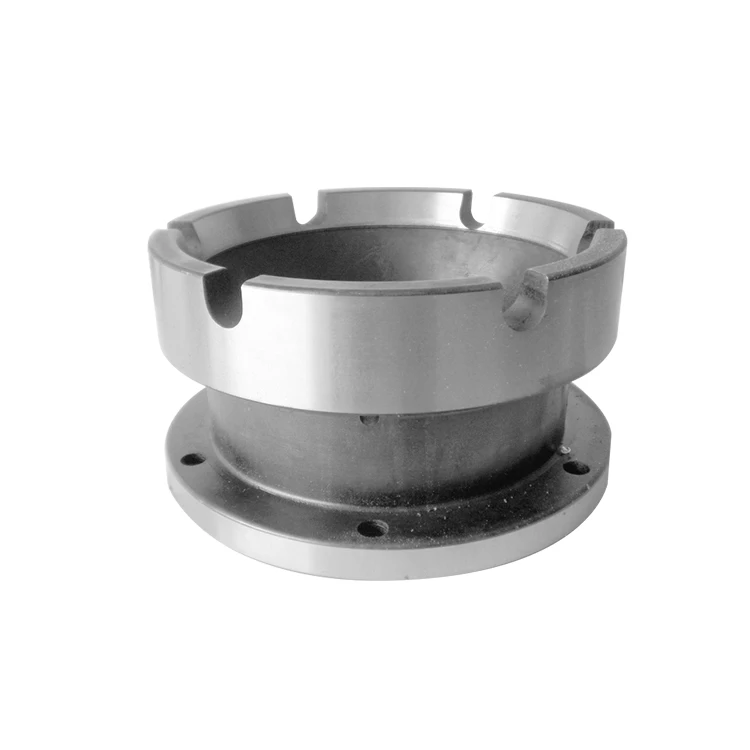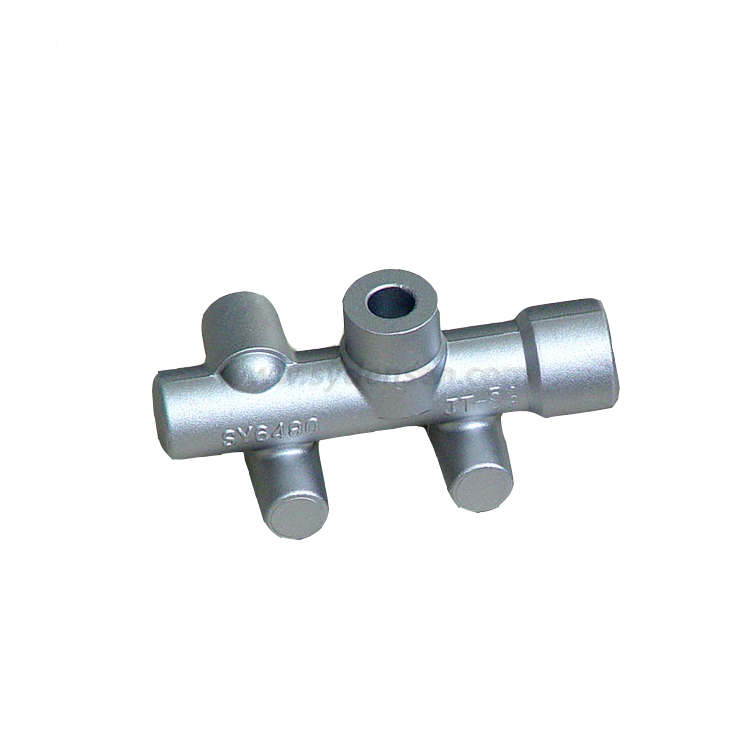Exploring how an Aluminum Foundry delivers cost-effective results
The Future of Aluminum Foundries: Trends and Developments Shaping the Industry
The light weight aluminum shop market is undergoing substantial change. Trick patterns highlight the significance of sustainability and effectiveness. Advancements in wise production and automation are ending up being prevalent. Foundries are significantly concentrated on making use of recycled materials. This shift questions about future techniques and modern technologies. Just how will these changes impact production approaches and market dynamics? The responses may redefine the market landscape in unanticipated ways.
Improvements in Smart Production Technologies
As the aluminum foundry industry develops, innovations in wise production technologies are coming to be increasingly essential for boosting productivity and effectiveness. The combination of automation, fabricated knowledge, and the Net of Things (IoT) is changing traditional shop operations. These technologies allow real-time tracking of procedures, permitting prompt changes that optimize result and decrease waste.
Maker discovering algorithms assess manufacturing data to recognize patterns and predict maintenance demands, decreasing downtime. Robotics are significantly used for repetitive tasks, freeing proficient workers to concentrate on even more complex difficulties. In addition, electronic doubles-- digital versions of physical processes-- help with simulations that can enhance style and functional methods.
The fostering of these clever manufacturing technologies is driving competitive benefits in the aluminum factory sector. By simplifying operations and boosting decision-making capabilities, shops can fulfill growing market needs while preserving premium criteria. The future of light weight aluminum foundries is unquestionably connected to these technological technologies.
Embracing Eco-Friendly Materials and Processes
The aluminum shop market is significantly concentrating on environmentally friendly products and procedures to boost sustainability. This change includes the adoption of lasting material sourcing, energy-efficient production techniques, and effective recycling and waste monitoring techniques. By integrating these methods, shops intend to reduce their environmental impact while maintaining competition out there.
Sustainable Product Sourcing
Exactly how can aluminum foundries improve their sustainability efforts? Sustainable material sourcing has actually become a crucial strategy in achieving this goal. By focusing on recycled aluminum, factories can considerably reduce their ecological impact, as recycled products need much less energy and less resources compared to key aluminum production. In addition, sourcing products from licensed distributors who follow eco-friendly techniques promotes accountable mining and reduces eco-friendly effect. Shops are likewise checking out alternative products, such as biopolymers and eco-friendly layers, to complement standard light weight aluminum processes. Collaborating with stakeholders, consisting of distributors and ecological companies, promotes innovation in sourcing approaches. Ultimately, welcoming lasting product sourcing not just lines up with international sustainability objectives yet likewise settings light weight aluminum shops as leaders in ecologically responsible manufacturing.
Energy-Efficient Manufacturing Strategies
Aluminum foundries are significantly taking on energy-efficient production strategies to enhance their lasting material sourcing initiatives. These methods concentrate on reducing energy intake throughout the production procedure. Advanced modern technologies, such as induction melting and maximized spreading procedures, are being carried out to reduce the overall carbon impact. Additionally, automation and smart manufacturing systems improve operational effectiveness, enabling for better energy administration. Shops are likewise exploring the combination of renewable resource resources, such as solar and wind, to power their procedures. By focusing on power performance, aluminum shops not only reduced manufacturing prices yet also straighten themselves with global sustainability goals, making certain an extra ecologically liable strategy to light weight aluminum manufacturing while fulfilling the increasing demand for environment-friendly techniques in the market.
Recycling and Waste Monitoring
Accepting environmentally friendly materials and procedures, aluminum factories are prioritizing recycling and waste monitoring approaches to boost sustainability in their operations. By integrating closed-loop systems, these centers are decreasing waste and making the most of resource effectiveness. Scrap light weight aluminum, a readily available product, is being recycled on-site, significantly minimizing the requirement for virgin materials and lowering energy consumption. Advancements in arranging and refining technologies even more facilitate the recycling of aluminum, ensuring that also polluted products can be repurposed efficiently. Furthermore, foundries are taking on sustainable methods such as decreasing contaminated materials and promoting making use of biodegradable materials for product packaging. This commitment to recycling not only reduces ecological influence but also improves the financial stability of light weight aluminum foundries in an open market.
The Function of Automation and Robotics
Automation and robotics are significantly transforming the aluminum foundry sector, substantially enhancing manufacturing efficiency. By incorporating advanced innovations, shops can reduce labor prices while simultaneously improving security requirements for their labor force. This change not only streamlines operations yet additionally places the industry for sustainable development in an open market.
Boosted Manufacturing Efficiency
Transforming production procedures, the assimilation of sophisticated robotics and automation modern technologies has become a keystone for aluminum shops seeking boosted effectiveness. These technologies streamline process, lower cycle times, and improve item top quality by reducing human mistake. Automated systems can check production lines in real-time, permitting instant adjustments that optimize result. Additionally, robotics help with the handling of harmful products, guaranteeing much safer working settings while boosting throughput. Predictive maintenance technologies additionally add to efficiency by expecting devices failings, thus lowering downtime. As a result, light weight aluminum factories can accomplish higher consistency in their products while click here to find out more reacting a lot more quickly to market needs. This embrace of automation is setting a brand-new standard for productivity and functional excellence within the market.

Minimizing Labor Costs
The change towards progressed robotics and automation in light weight aluminum factories not just improves production efficiency yet also plays a substantial duty in minimizing labor prices. By integrating automated systems, shops can decrease the dependence on manual work, which frequently involves high earnings and training costs. Robotics enhance recurring tasks such as pouring, molding, and finishing, allowing for a higher result with less workers. This technological modification not just lowers labor-related costs however likewise boosts uniformity and high quality in manufacturing. Automation can run around the clock, making best use of operational hours without the associated expenses of overtime or shift differentials. Therefore, light weight aluminum foundries can achieve significant financial savings while maintaining competitive rates in an advancing market landscape.
Improving Security Criteria
While conventional aluminum shop procedures often reveal workers to hazardous environments, the combination of robotics and automation considerably boosts safety and security requirements within the market. Automated systems can do high-risk tasks, such as liquified metal handling and heavy training, decreasing human exposure to harmful problems. Furthermore, robotics can run in severe temperatures and hazardous atmospheres, successfully minimizing the threat of injury. Advanced checking modern technologies and synthetic knowledge warranty real-time safety and security analyses, enabling immediate responses to possible risks. Automation streamlines process, minimizing the likelihood of accidents triggered by human error. Because of this, the adoption of these innovations not only boosts safety however additionally promotes an extra productive and effective functioning atmosphere in aluminum shops.
Enhancing Energy Performance in Manufacturing
As aluminum shops look for to preserve competitiveness in an evolving market, boosting power efficiency in production has actually arised as an essential emphasis. By adopting innovative modern technologies such as high-efficiency melting heaters and automated temperature controls, factories can especially reduce energy intake. Executing real-time surveillance systems enables accurate tracking of energy usage throughout the production procedure, allowing fast modifications to optimize effectiveness.
Furthermore, shifting to alternate power resources, including eco-friendly choices, can additionally reduce the carbon impact. The combination of power recuperation systems, which redeem waste warm for reuse, is ending up being significantly usual. Training workers in energy management practices assures that everybody involved in the production process is conscious of energy usage.
These campaigns not just lower functional costs however likewise line up with worldwide sustainability objectives, positioning light weight aluminum factories as liable players in the industry while improving their overall competition. - Precision aluminum casting
Developments in Recycling Aluminum
Developments in recycling light weight aluminum have gotten energy together with efforts to boost energy effectiveness in production. The aluminum sector has actually embraced innovative innovations that improve the reusing process, decreasing energy consumption and ecological influence. Methods such as hydrometallurgy and brand-new sorting innovations boost the removal of light weight aluminum from scrap, improving return prices and ensuring better recycled material.
The advancement of closed-loop recycling systems allows foundries to reuse aluminum without significant deterioration in quality, making the procedure more sustainable. Technologies in logistics and collection, including enhanced monitoring systems and automated sorting, have also played a necessary role in boosting the performance of aluminum recovery. These advancements not just add to a circular economy however also assist alleviate the carbon footprint connected with aluminum production. As the need for lasting techniques expands, these innovations place the aluminum shop field as a leader in accountable source administration.
Reacting To Market Demands and Customer Trends
Flexibility has actually become a cornerstone for aluminum foundries reacting to advancing market demands and consumer patterns. As official source industries significantly prioritize sustainability, light weight aluminum foundries are changing in the direction of environment-friendly techniques, consisting of enhanced recycling processes and reduced carbon impacts. This change aligns with customer choices for eco accountable items, driving factories to introduce their offerings.
Additionally, the rise of light-weight products in vehicle and aerospace sectors demands improvements in aluminum alloys and casting strategies. Factories are spending in r & d to generate high-strength, light-weight parts that fulfill stringent efficiency requirements.
Moreover, personalization has actually gained traction, with consumers seeking tailored services. Aluminum shops are leveraging innovative production innovations, such as 3D printing, to fit certain customer requirements effectively. This responsiveness not just pleases consumer needs however likewise positions aluminum foundries competitively in a dynamic market landscape, guaranteeing their significance in an ever-changing commercial atmosphere.

Regularly Asked Inquiries
How Do Light Weight Aluminum Foundries Influence Citizen Economies?
Aluminum factories considerably affect local economic situations by producing work, promoting need for neighborhood suppliers, and contributing to community advancement. Their procedures often result in boosted tax obligation revenues, which can fund vital civil services and facilities renovations.
What Are the Security Laws for Light Weight Aluminum Shop Workers?
Security policies for aluminum foundry employees include required personal protective tools, proper ventilation systems, routine training on hazardous materials, and adherence to standards established by job-related health and wellness administrations to minimize risks and assurance worker safety. - Aluminum Casting Company
How Does Light Weight Aluminum Recycling Affect Global Supply Chains?
Light weight aluminum recycling substantially reduces need for resources, improves resource performance, and maintains rates. This change influences global supply chains by cultivating a circular economic climate, advertising sustainability, and making sure a much more resistant industry in varying markets.
What Occupation Opportunities Exist in the Aluminum Factory Sector?
Numerous profession possibilities exist in the aluminum shop sector, consisting of roles in engineering, quality assurance, manufacturing management, and study and growth. Experienced labor placements such as mold manufacturers and equipment drivers are likewise popular.
Just How Do International Trade Plans Impact Aluminum Foundries?
International trade policies greatly impact aluminum shops by impacting import tolls, supply chain characteristics, and market gain access Discover More Here to. These factors can affect functional prices, competitiveness, and overall success within the international light weight aluminum manufacturing landscape.
By prioritizing recycled light weight aluminum, foundries can substantially lower their ecological impact, as recycled materials call for much less power and less sources compared to key light weight aluminum manufacturing. Light weight aluminum foundries are increasingly embracing energy-efficient production techniques to enhance their lasting material sourcing efforts. Automation and robotics are significantly transforming the light weight aluminum shop industry, significantly boosting production efficiency. The shift in the direction of progressed robotics and automation in light weight aluminum foundries not just boosts manufacturing effectiveness however likewise plays a considerable duty in lowering labor costs. As aluminum shops seek to maintain competition in an evolving market, improving power effectiveness in production has arised as a vital emphasis.